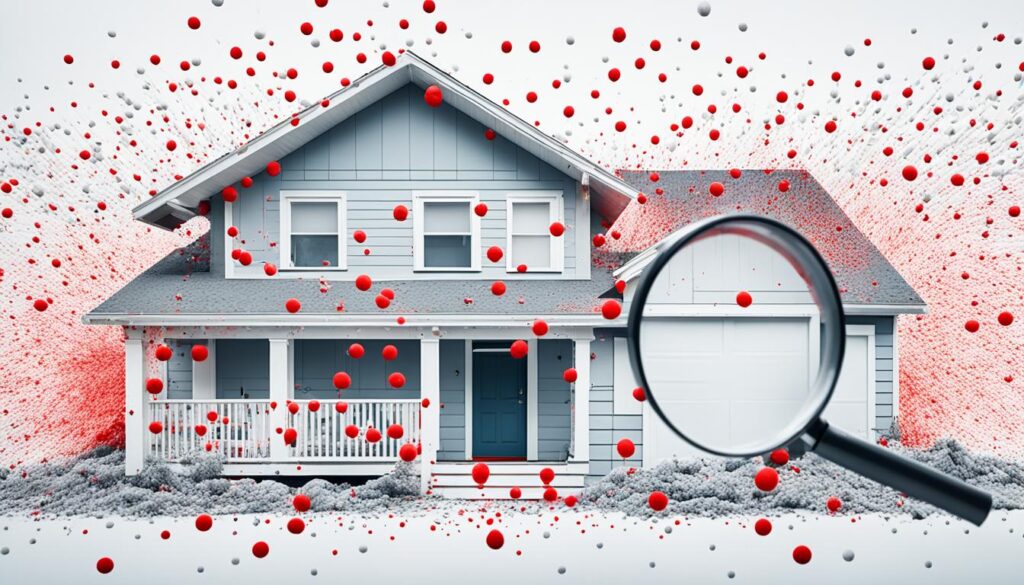If you’re in charge of non-domestic buildings from before 2000, you must manage asbestos. This rule is set by the Control of Asbestos Regulations 2012. It’s to protect people from asbestos risk. This applies to factories, schools, hospitals, and more.
Even though it’s not a rule for homes, getting an asbestos survey is wise before doing any major work or buying a property. The survey finds any asbestos in the building. It checks their condition and how to handle them safely. There are two types of surveys: one for regular building use and another for when buildings need work or tearing down.
To follow asbestos management laws, you need to find if your building has asbestos. Then, figure out how risky it is and make a plan to manage it. This will help keep everyone safe.
Key Takeaways:
- An asbestos survey is essential for identifying and managing asbestos-containing materials in buildings.
- Non-domestic properties built before 2000 must have a management asbestos survey in place to comply with regulations.
- Refurbishment and demolition surveys are required for construction work on pre-2000 buildings.
- Asbestos surveys may be necessary during property transactions and lease agreements.
- Consulting with a qualified asbestos surveyor ensures compliance and effective management of asbestos risks.
Legal Requirements for Asbestos Surveys
Asbestos surveys are critical and often required by law. For buildings made before 2000, a management asbestos survey is a must. This is due to the Control of Asbestos Regulations 2012. The survey pinpoints materials that might contain asbestos.
Managing these materials is vital for everyone’s safety.
Before any work starts on old buildings, refurbishment, and demolition surveys are needed. They make sure asbestos is found before construction, to avoid exposure.
An asbestos survey might be needed when dealing with property too. This happens when selling, buying, or leasing. It lets people make smart decisions and manage asbestos well. An asbestos survey is also key for properties in pension plans, to check for risks.
Utilities and local authorities might need an asbestos survey for installations or planning. Landlords must know about asbestos in common areas. This shows why surveys are crucial for safety and following the law.
Legal Requirements for Asbestos Surveys
Asbestos surveys are a must for older buildings. They’re needed for works like renovations or demolitions. Transactions involving properties might also require a survey. Utility companies, local authorities, and landlords have duties regarding asbestos surveys too.
| Legal Requirements | Examples |
|---|---|
| Non-domestic properties built before 2000 | Office buildings, factories, schools, hospitals |
| Refurbishment and demolition surveys | Construction projects, renovations, demolitions |
| Property transactions | Selling, buying, leasing, pension arrangements |
| Utility installations and planning permission | Utility companies, local authorities |
| Landlords’ obligations | Common areas in properties |
Doing an asbestos survey helps property owners meet legal standards and uncover asbestos risks. Getting help from a professional surveyor is crucial. This way, the health and safety of everyone in a property are safeguarded.

Conclusion
An asbestos survey is vital for spotting and handling asbestos in buildings. It’s needed for older non-domestic properties and advised for others. Doing a survey keeps people in the building safe.
Getting a professional to check for asbestos helps property owners follow the law. It’s all about keeping people safe from asbestos risks. An asbestos survey is a key step in this process.
With a survey, you can find and manage asbestos safely. It lets owners plan how to deal with asbestos. This keeps everyone in the building safe from harm.
